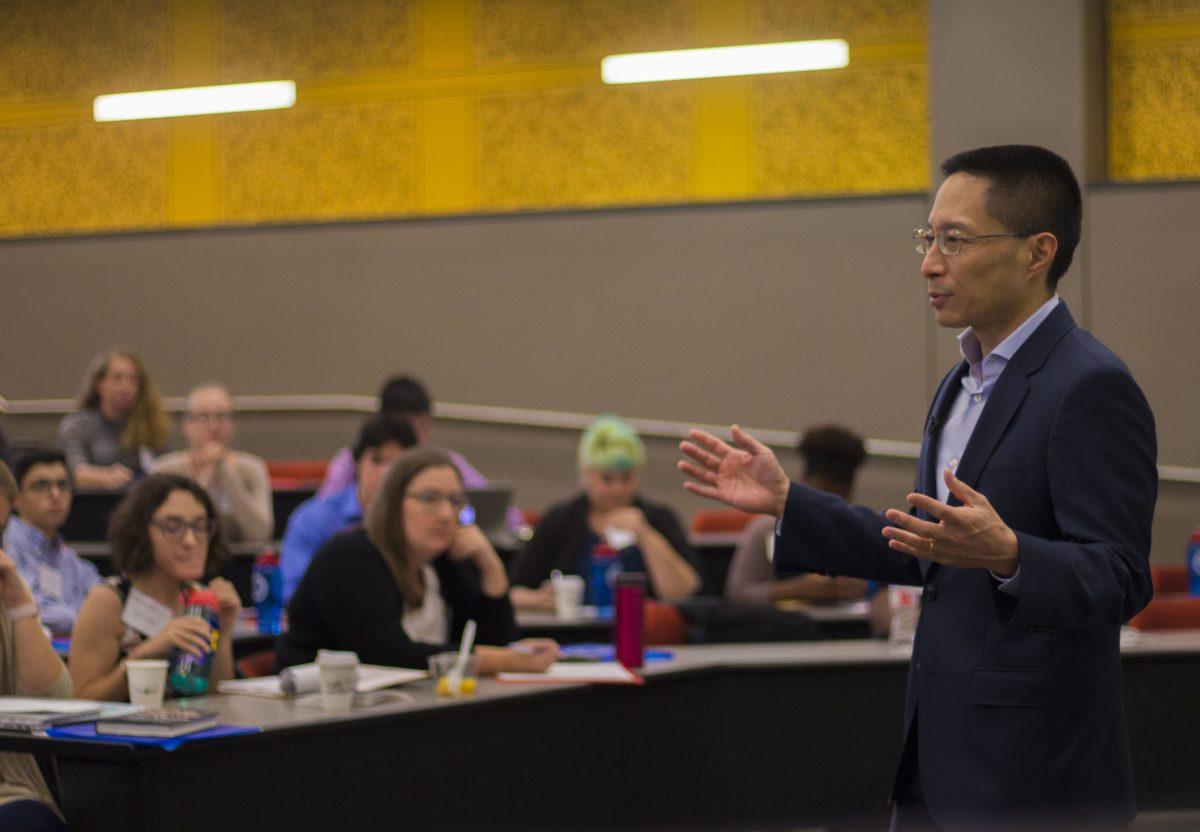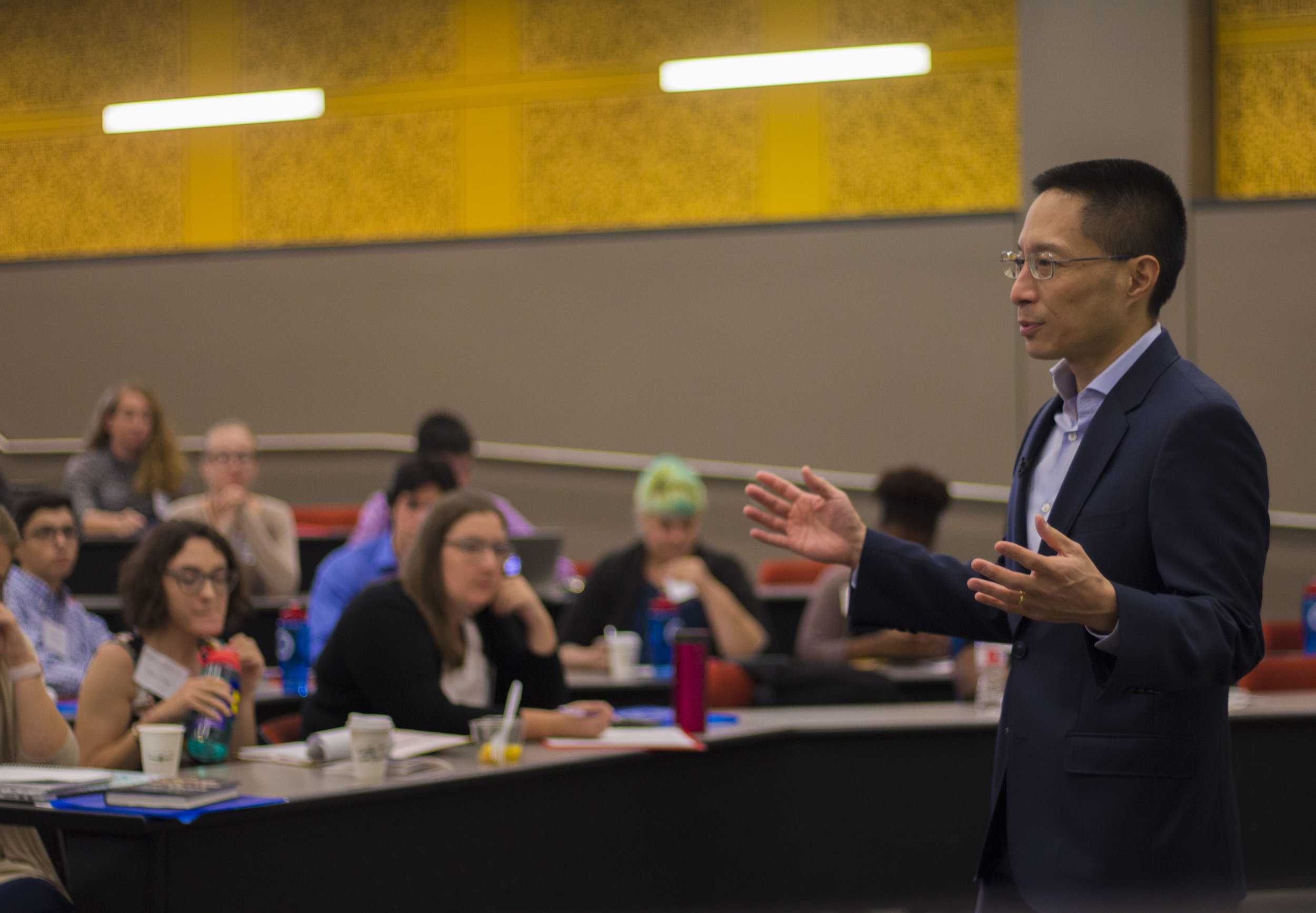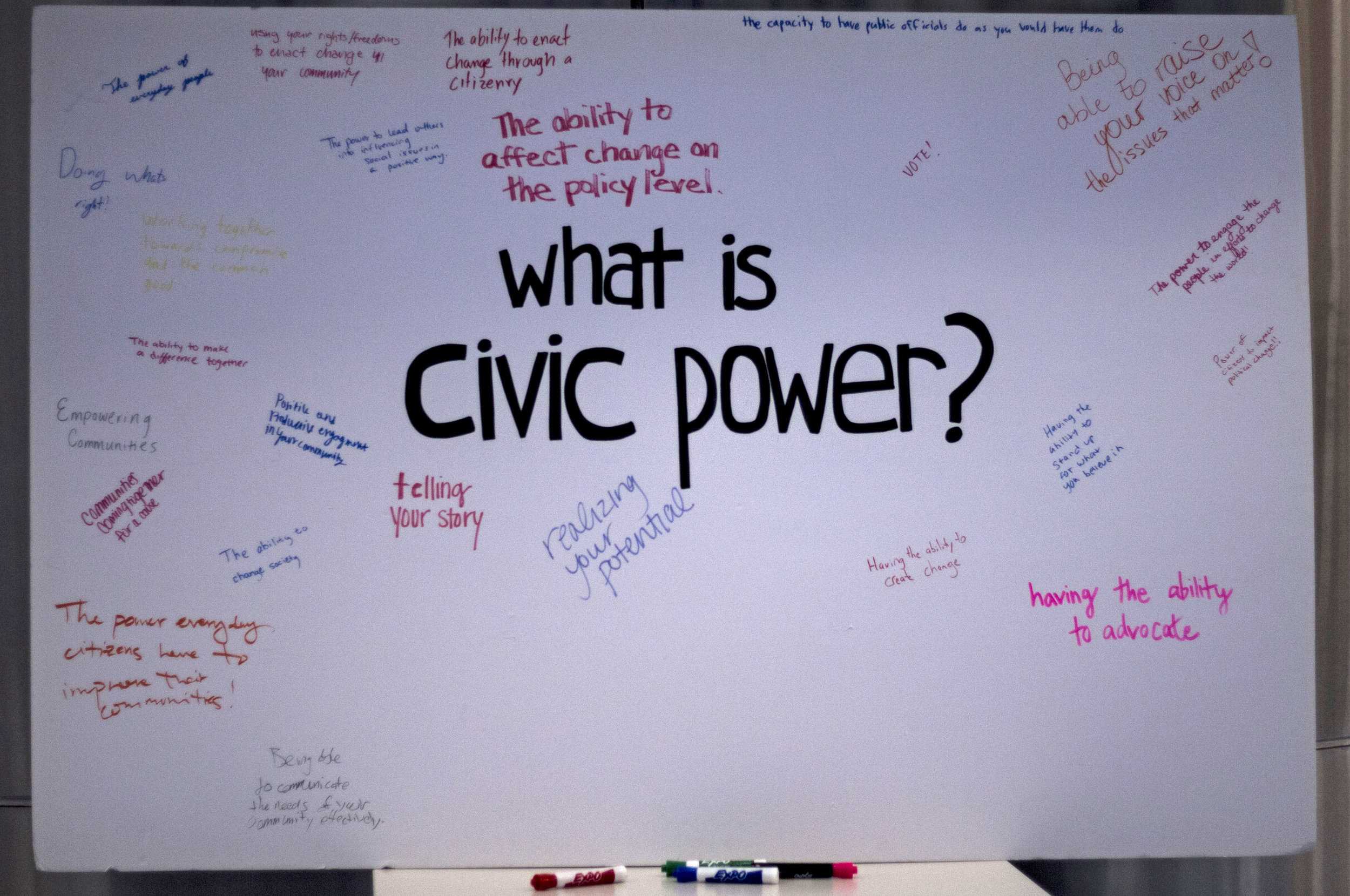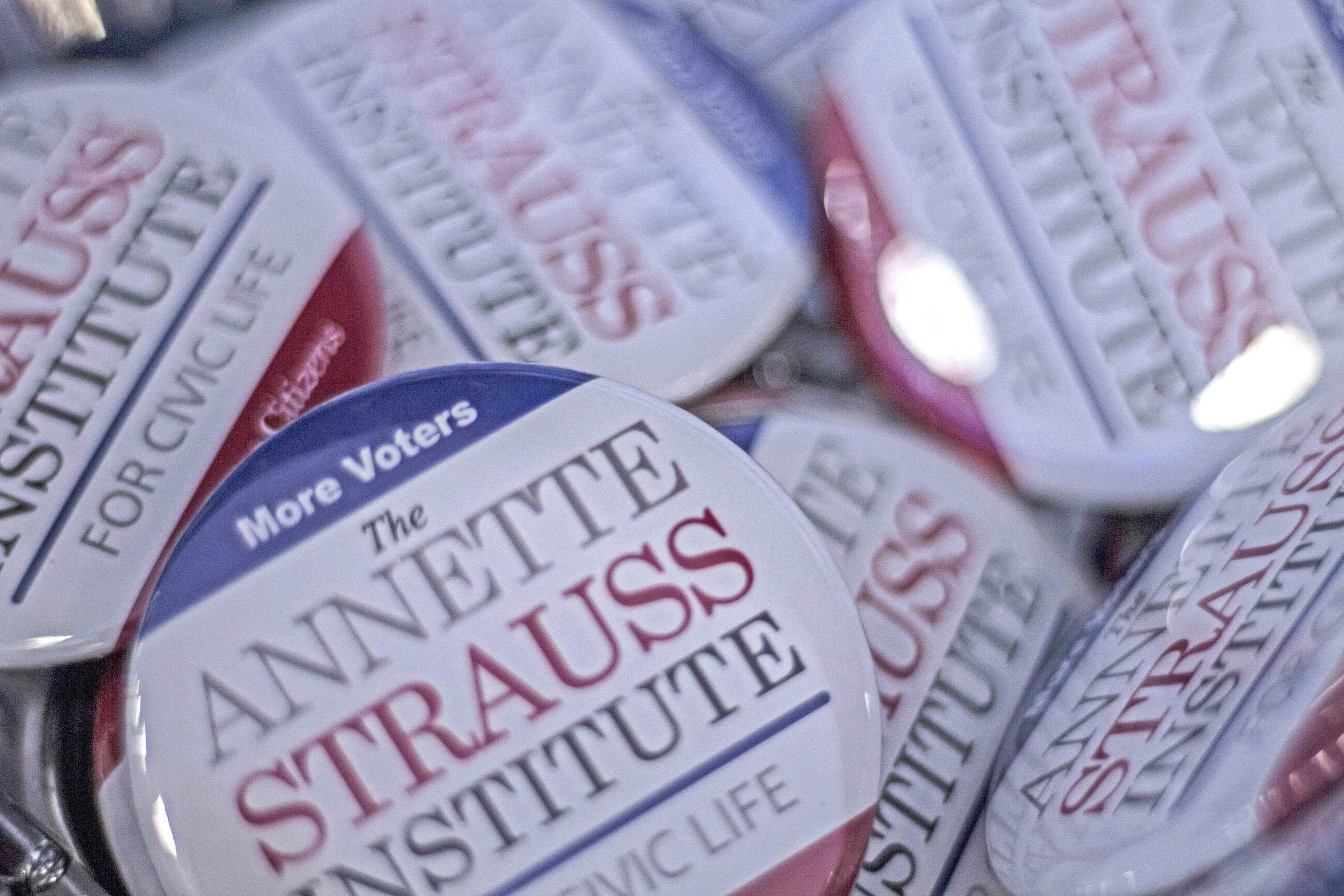Eric Liu, keynote speaker, is the author of “You’re More Powerful than You Think: A Citizen’s Guide to Making Change Happen.”
On Nov. 4, the Annette Strauss Institute for Civic Life hosted renowned TED speaker Eric Liu to discuss his views on the power that young adults hold at the University of Texas at Austin.
Story by William Kosinski
Photos by Ashley Nava
The event was part of the Civic Power Symposium. “Our goals are to further enhance the work of civic engagement,” says Susan Nold, the director of the Institute. “We do that by creating college programs in the state, like the one we are attending today, to let people know about the state of civic involvement in our state and how they can be involved.”
The students were first enlightened by Liu’s three laws of power. These laws maintain that “power compounds, power self-justifies, and power is infinite.” Liu explains that power first forms, later distributes and finally solidifies amongst a democracy. “While people who are held down are realizing that they can organize,” Liu says. “The status quo is already pushing back. There is a word for that churn, that struggle between people that have power and people that do not. It’s called politics.”
Throughout the event participants were able to answer what civic power meant to them.
The struggle is fought by voting. Carlos Chavez, a geology sophomore, came to the event to listen to Liu speak and to find other students committed to increasing civic engagement in Austin. “I think voting is important so that you can have your voice heard and represented,” Chavez says. “Even as college students, [Austin] may not be where you are from, I think it’s important that you become invested in your community where you moved to.”
Chavez is a member of Texas Votes, a nonpartisan organization that aims to increase voter registration and turnout at UT. They do so by registering students to vote and raising awareness of upcoming elections.
Following the conversation about civic engagement, Nold mentioned that research first-time voters are likely to continue to vote. “Getting students to registered and voting is a habit that they will likely take with them their whole lives,” Nold says.
Nold praised Texas Votes and cited their win of the Most Improved Undergraduate Voter Turnout Award of the national ALL IN Campus Democracy Challenge. “That is a sign that students at this campus are mobilized and engaged and really want to turn out on election day,” Nold says.
The Annette Strauss Institute for Civic Life was founded in 2000 to inform voters and engage active citizens.
There is still room for improvement. Texas Votes is creating plans to target communities within UT that do not vote enough, including STEM majors. “Moody, Liberal Arts and Education are [colleges] amongst the highest voting rates at UT and the lowest are among STEM majors,” Chavez says. We want everyone to participate equally, so we want to ensure that STEM majors come out and vote at the same rates as other colleges.”
This is exactly the kind of action what Liu wants to see. He believes that when young people create ideas to attract other young people to register and vote, the most progress will be made in civic engagement. “There is no such thing as not voting,” Liu says. “Not voting is like wearing a “kick-me” sign on your back.”
Liu added that fluency and power are not enough to motivate change. This motivation to create change is what defines an individual’s character. Just as an individual can gain power through organizing, they can lose their power when they do not vote.
Without this engagement, individuals lose their ability to create the change they want to see. Liu also outlined the distiniction between an individual and a citizen. “As a citizen, you have to persist if you want to right a wrong,” Liu says. “If you have character to give power to those who don’t, you are a citizen.”














































